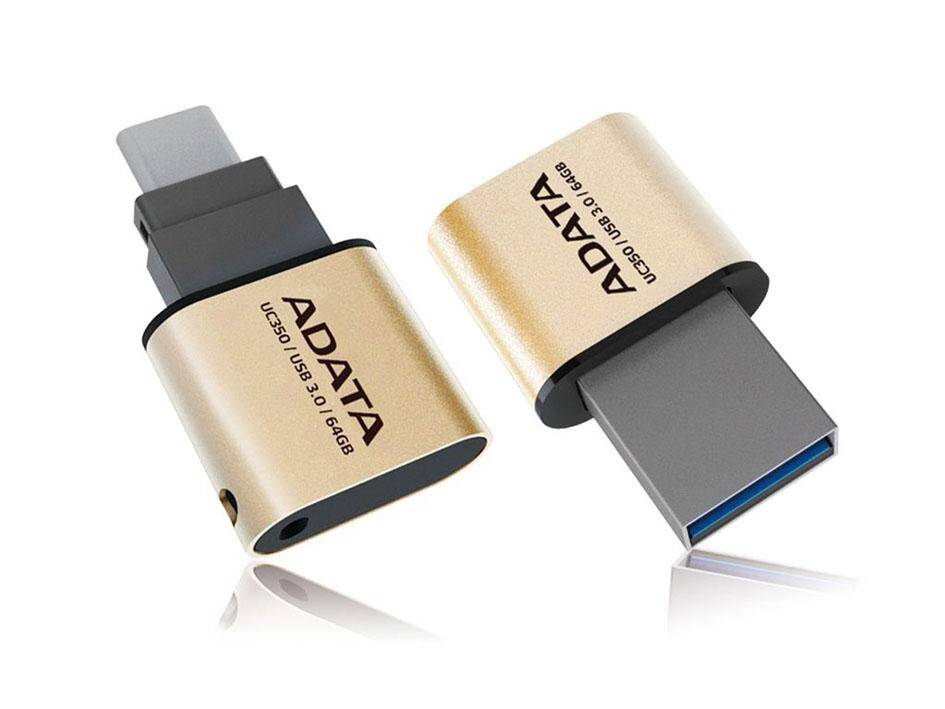Memory module maker Adata Technology Co (威剛科技) yesterday said that revenue last month rose 15.28 percent monthly on the back of significant growth in shipments and an improving supply glut.
Adata’s revenue expanded to NT$2.45 billion (US$79.65 million), bringing its cumulative revenue in the first five months of this year to NT$11.79 billion.
On an annual basis, last month’s revenue fell 12.53 percent from NT$2.81 billion a year earlier, corporate data showed.

Photo courtesy of Adata Technology Co via CNA
“Capacity reductions by the world’s major memory chipmakers have helped mitigate inventory pressure on the supply chain. Some of our customers started showing improved appetite for our products,” Adata said in a statement.
“Adata expects the DRAM industry to have clear prospects in the third quarter in terms of chip price and demand, given the global economy does not deteriorate,” it said.
Adata expects the DRAM industry to bottom out next quarter.
It is adjusting upward its inventory ahead of an expected rebound in demand during the second half of this year, the company said.
Meanwhile, DRAM chipmaker Nanya Technology Corp (南亞科技) last month posted increased revenue for a third straight month at NT$2.31 billion, rising 2.17 percent from NT$2.26 billion in April.
Last month’s performance was the best since the beginning of this year, although it was down 62.74 percent from NT$6.2 billion a year earlier.
Winbond Electronics Corp (華邦電子), which makes DRAM and flash memory chips, reported a 7.98 percent monthly increase in revenue to NT$6.14 billion last month.
That translated into a decline of 30.41 percent from a year earlier.
In the January-to-May period, revenue contracted 33.71 percent annually to NT$29.34 billion.
Winbond told investors in February that the first quarter was the worst period and demand would improve from this quarter, given rising rush orders.
Macronix International Co Ltd (旺宏), the world’s biggest supplier of NOR flash memory chips, last month posted a revenue decrease of 24.2 percent month-on-month to NT$2.28 billion from about NT$3 billion in the previous month, after a brief rebound in April.
On an annual basis, its revenue dropped 35.7 percent from NT$3.55 billion a year earlier.
During the first five months of this year, revenue fell 34.9 percent year-on-year to NT$19.03 billion.
Macronix said revenue this quarter would be similar to the first quarter’s.
However, it hoped to return to the black, aided by improving demand for memory chips used in vehicles, as well as industrial and medical devices.

Three experts in the high technology industry have said that US President Donald Trump’s pledge to impose higher tariffs on Taiwanese semiconductors is part of an effort to force Taiwan Semiconductor Manufacturing Co (TSMC, 台積電) to the negotiating table. In a speech to Republicans on Jan. 27, Trump said he intends to impose tariffs on Taiwan to bring chip production to the US. “The incentive is going to be they’re not going to want to pay a 25, 50 or even a 100 percent tax,” he said. Darson Chiu (邱達生), an economics professor at Taichung-based Tunghai University and director-general of

‘LEGACY CHIPS’: Chinese companies have dramatically increased mature chip production capacity, but the West’s drive for secure supply chains offers a lifeline for Taiwan When Powerchip Technology Corp (力晶科技) entered a deal with the eastern Chinese city of Hefei in 2015 to set up a new chip foundry, it hoped the move would help provide better access to the promising Chinese market. However, nine years later, that Chinese foundry, Nexchip Semiconductor Corp (合晶集成), has become one of its biggest rivals in the legacy chip space, leveraging steep discounts after Beijing’s localization call forced Powerchip to give up the once-lucrative business making integrated circuits for Chinese flat panels. Nexchip is among Chinese foundries quickly winning market share in the crucial US$56.3 billion industry of so-called legacy

Taiwan Semiconductor Manufacturing Co (TSMC, 台積電) yesterday held its first board of directors meeting in the US, at which it did not unveil any new US investments despite mounting tariff threats from US President Donald Trump. Trump has threatened to impose 100 percent tariffs on Taiwan-made chips, prompting market speculation that TSMC might consider boosting its chip capacity in the US or ramping up production of advanced chips such as those using a 2-nanometer technology process at its Arizona fabs ahead of schedule. Speculation also swirled that the chipmaker might consider building its own advanced packaging capacity in the US as part

A move by US President Donald Trump to slap a 25 percent tariff on all steel imports is expected to place Taiwan-made steel, which already has a 25 percent tariff, on an equal footing, the Taiwan Steel & Iron Industries Association said yesterday. Speaking with CNA, association chairman Hwang Chien-chih (黃建智) said such an equal footing is expected to boost Taiwan’s competitive edge against other countries in the US market, describing the tariffs as "positive" for Taiwanese steel exporters. On Monday, Trump signed two executive orders imposing the new metal tariffs on imported steel and aluminum with no exceptions and exemptions, effective